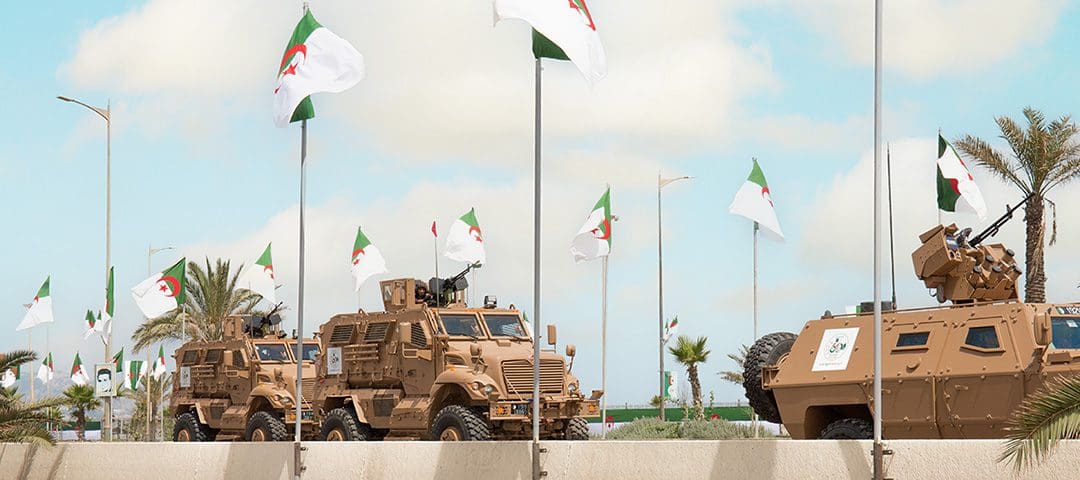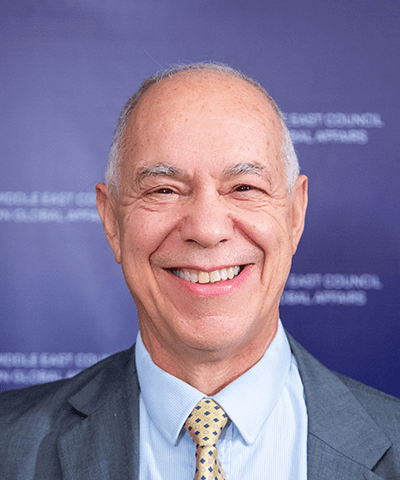In a letter addressed to United States Secretary of State Antony Blinken on September 29, U.S. Congresswoman Lisa McClain (R-MI) and 26 of her colleagues called for imposing sanctions on Algeria through the Countering America’s Adversaries Through Sanctions Act (CAATSA). The move is ostensibly connected to the war in Ukraine and the intensifying competition between Russia and the U.S.-NATO alliance, which has extended into the Middle East and North Africa (MENA) region. It may also be explained by the growing influence of Algeria’s archrival, Morocco, in Washington and the competition therein between the neighboring countries. In any case, while the U.S. is seeking to pressure Algiers to adopt the Western position condemning Russia’s intervention of Ukraine, this aggressive and misguided policy fails to account for Algeria’s longstanding foreign policy principles and the potential consequences for relations with the West at a time when Algeria is needed to shore up a global energy shortfall. Indeed, coercing Algeria may have the opposite effect and push the North African nation to further enhance relations with Russia and China.
The United States Calls for Sanctions on Algeria
In their letter to Blinken, McClain and her colleagues claim that Algeria purchased arms from Russia last year in violation of the 2017 CAATSA legislation and should therefore be penalized with sanctions. The demand to impose sanctions on Algeria echoes another call for sanctions from Senator Marco Rubio (R-FL) earlier in September, which coincidentally came on the same day that the Algerian National Armed Forces chief of staff held an audience with the U.S. ambassador in Algiers.
The calls for sanctions against Algeria, for its ties to Russia, ignore the close cooperation and commercial relations between the U.S. and Algeria, as well as the long-standing strategic dialogue between the two countries. Indeed, Blinken highlighted this strategic dialogue during his trip to Algiers in March and emphasized the importance of Algeria’s role in stabilizing the Maghreb-Sahel region.
Moreover, the reasoning for sanctions on Algeria represents a double standard. While Algeria imports weapons from Russia, it also does so from the U.S., Germany, Italy, France, Turkey, Ukraine, and South Africa. And despite acquiring the bulk of its military hardware from the U.S. and France, Morocco imports from Russia and China, among others. Indeed, Algeria appears to be singled out in ways that other U.S. partners are not. India, for example, has historically deep and strategic ties with Russia. And while the U.S. has sought to sway India away from Moscow, the U.S. has also reassured India that it could continue to import its weapons from Russia. So, why the threat of imposing sanctions against Algeria, which has a strategic dialogue, excellent relations, and solid security and energy cooperation with the United States and its allies? Why would these lawmakers seek to damage U.S.-Algerian relations, especially at a time when the U.S. wishes to wean countries away from Moscow?
It is true that U.S.-Algeria ties had already come under strain during the Trump administration after it chose to break with long-standing U.S. policy and recognize Morocco’s claims over Western Sahara, which Algeria opposes. The Biden administration has since adhered to the controversial Trump decision. Yet, this does not seem like a satisfactory explanation on its own for ramping up discord. One additional reason could be Morocco’s enhanced lobbying efforts in Washington in recent years, which could be used against Algeria in addition to advancing its own interests. It is worth noting that Senators Rubio and fellow Republican Ted Cruz have close links to lobbying firms that have been retained by Morocco in Washington, such as JPC Strategies, which was founded by Cruz’s former deputy chief of staff James Christoferson. Moreover, as U.S. policy in the Middle East increasingly looks to incentivize Arab countries to normalize relations with Israel, it is possible that applying pressure on Algeria could be used to steer it toward a similar end.
Situating Algerian-Russian Relations in History
The historical context of Algeria’s foreign policy and its ties to Russia are also important when assessing the current effort to pressure Algeria to break those ties. Algeria maintains long-standing principles of nonalignment and independence in its foreign policy. As such, Algeria keeps good relations with the great powers and with countries on all continents. However, Algeria’s affinity for Russia stems from the positions taken by the U.S. and Soviet Union during the North African nation’s fight for independence from France in the 1950s. During that period, U.S. President John F. Kennedy backed France in order to prevent the European nation from moving closer to the Soviet Union, which hindered the establishment of trust between the U.S. and the Algerian independence movement. On the other hand, the Soviet Union and China provided weapons and medical assistance to Algerian nationalists. After gaining independence in 1962, Algeria sought to transform its anticolonial guerrilla forces into a modern army, but the U.S. and other Western powers, including France, declined the Algerian government’s request for assistance. Some Algerian officials also believe that the U.S. secretly backed Morocco during its invasion of Algeria in the fall of 1963 in pursuit of claims on Algerian territory. Through the Cold War period, Algerians were left with little choice but to turn to the Soviet Union, which heeded the country’s appeal. This is the context in which Algeria’s military cooperation with the ex-USSR began and has continued with Russia hitherto.
The United States and Russia’s Competition for Regional Influence in Algeria
While U.S. politicians may have little concern for the nuances of Algerian-Russian relations, this history could inform how Algeria reacts to an antagonistic change in U.S. policy. As the conflict in Ukraine continues, the U.S. and its European allies are pressuring some of Russia’s partners, including those in MENA, to boycott Moscow. Algeria faces a difficult position. On the one hand, Algiers, like other regional states, is attempting to balance between Russia and the U.S.-European alliance. On the other hand, Algeria is feeling pressured to sever a partnership with Russia that extends to various areas, including military, security, economic, social, and political issues.
Coercing Algeria, however, will not necessarily work in favor of the Western alliance. The European energy crisis, which has stemmed from the demand to divest from Russian energy imports, has increased the necessity for alternative suppliers, and Algeria is the third largest natural gas supplier to Europe after Russia and Norway. Indeed, Algerian gas exports to Italy are projected to rise by over 20 percent this year, and Spain currently receives 43 percent of its gas imports from Algeria. This dependence on Algeria is reinforced by existing import infrastructure and the physical proximity between Algeria and Western Europe, which cannot be replaced in short order. The increasing interdependency between Algeria and Europe will complicate America’s ability to push its partners to isolate Algeria.
Moreover, in using the pressure of sanctions, Washington risks Algiers abandoning its nonaligned foreign policy orientation and forging closer cooperation with Moscow. Algerian-Russian ties have already expanded in recent years. Algerian President Abdelmadjid Tebboune announced in August that his country would be interested in joining the BRICS, a bloc of five major economies that includes Brazil, Russia, India, China, and South Africa, and meet annually. Tebboune expressed the move in terms of being part of “an alternative to traditional [Western] power centers.” The statement was telling, as it reflected the disillusionment with Western powers and the pressure they exert on regional states to conform to their positions.
As the war transpires and regional states are forced to grapple with balancing traditional alliances with Western powers and shifting their sights to new partners, Algeria will have to carefully consider its choices against the backdrop of Russian-American hostilities. It is imperative that the U.S. also consider the potential repercussions of its decisions and calls to isolate Russia’s partners—particularly Algeria, a valuable U.S. partner in the fight against terrorism. While Algiers continues to maintain its foreign policy principles of balancing between competing powers, the imposition of sanctions might force it to abandon its traditional nonalignment posture.
The opinions expressed in this article are those of the author and do not necessarily reflect the views of the Middle East Council on Global Affairs.


